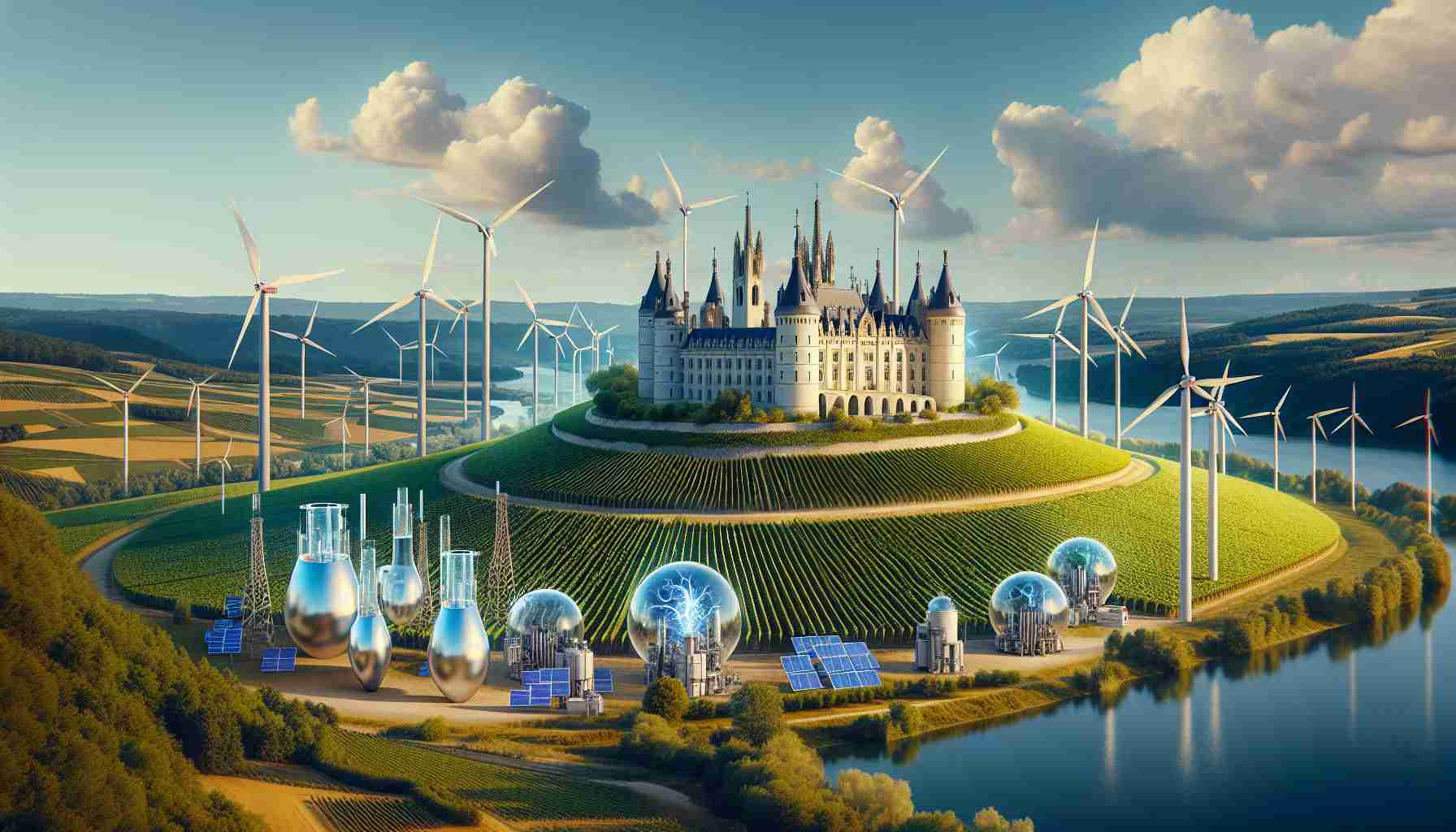In an ambitious move towards renewable energy, the Loire Valley in France is embarking on the AdvancedH2Valley initiative, directed by the innovative hydrogen producer, Lhyfe. This pioneering project, with a substantial budget exceeding €64 million, incorporates an extensive collaboration of 18 partners to position the region at the forefront of the clean energy sector. The impact of this initiative extends beyond local boundaries, providing a blueprint for sustainable hydrogen solutions that can resonate across Europe.
Among the program’s key features is the exhilarating development of a hydrogen production facility capable of generating over 1,600 tons of renewable hydrogen annually by 2028. This facility will play a critical role in meeting the rigorous standards of the EU Renewable Energy Directive. Additionally, the project aims to enhance regional transport infrastructure by introducing new hydrogen refueling stations to support heavy-duty vehicles, thereby embracing hydrogen’s potential in logistics and maritime transport.
The significance of AdvancedH2Valley lies not just in its innovative technology, but also in its potential to eliminate 2.8 million tons of CO2 emissions by 2036. This project serves as a symbol of collaboration, demonstrating how collective efforts can accelerate the shift towards a sustainable energy future. The insights gained from this endeavor promise to inform and inspire other regions, reinforcing the notion that hydrogen is a vital part of today’s clean energy narrative, addressing both current needs and future aspirations.
FAQ Section:
What is the AdvancedH2Valley initiative?
The AdvancedH2Valley initiative is a renewable energy project in the Loire Valley, France, led by the hydrogen producer Lhyfe. It involves a budget of over €64 million and includes collaboration among 18 partners to develop sustainable hydrogen solutions.
What are the goals of the AdvancedH2Valley initiative?
The initiative aims to establish a hydrogen production facility that will generate over 1,600 tons of renewable hydrogen per year by 2028. It also seeks to improve regional transport infrastructure by introducing new hydrogen refueling stations for heavy-duty vehicles.
How does the project align with EU regulations?
The hydrogen production facility is designed to meet the rigorous standards set by the EU Renewable Energy Directive, ensuring compliance with European clean energy regulations.
What is the environmental impact of the project?
AdvancedH2Valley is expected to eliminate approximately 2.8 million tons of CO2 emissions by 2036, contributing significantly to the reduction of greenhouse gas emissions.
Why is hydrogen considered important in the clean energy narrative?
Hydrogen is seen as a vital component of the clean energy transition, capable of addressing current energy needs while also providing solutions for future energy challenges. The project’s insights will help other regions innovate and adopt similar sustainable practices.
Who are the partners involved in the initiative?
The initiative involves an extensive collaboration among 18 partners, though specific names and roles are not detailed within the article.
What potential benefits does the project offer beyond the local area?
In addition to local benefits, the initiative serves as a blueprint for sustainable hydrogen solutions applicable throughout Europe, showcasing how collaboration and innovation can drive the transition to renewable energy.
Key Terms:
– Renewable Hydrogen: Hydrogen produced through renewable energy sources, such as water electrolysis powered by wind or solar energy, which does not generate greenhouse gas emissions.
– EU Renewable Energy Directive: A legislative framework established by the European Union to promote the use of renewable energy sources and enhance energy efficiency across member states.
– CO2 Emissions: Carbon dioxide emissions resulting from burning fossil fuels, which contribute to global warming and climate change.
– Hydrogen Refueling Stations: Infrastructure that allows vehicles powered by hydrogen fuel cells to refuel, similar to gas stations for conventional vehicles.
Suggested Related Links:
Lhyfe
European Union
